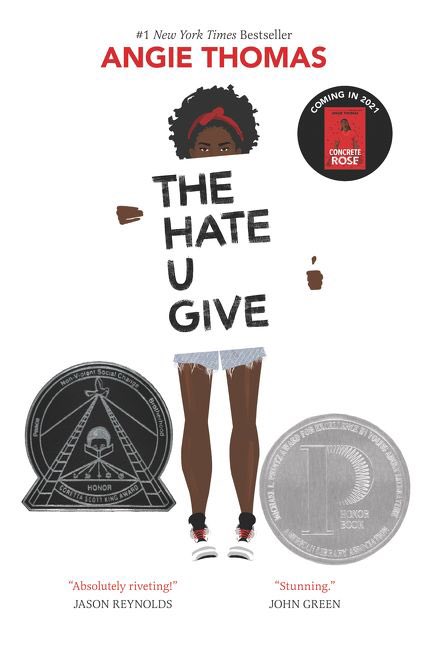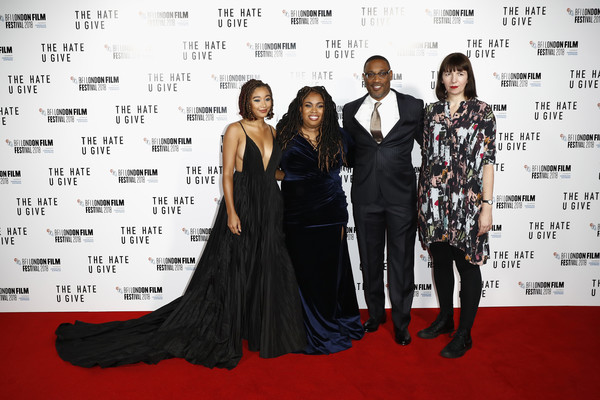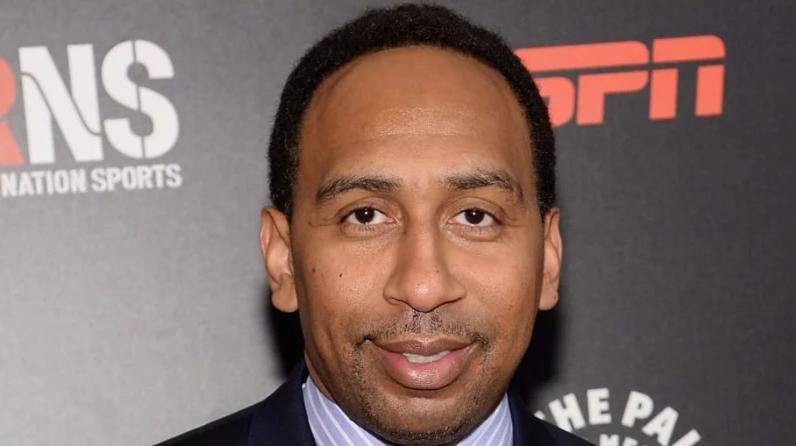
*Angie Thomas, author of the acclaimed young adult novel ”The Hate U Give,” recently teamed with The Decameron Project, an initiative founded by students, for students to connect through storytelling during the pandemic.
The goal of the initiative, according to a press release, is to “empower students to share their stories, and to come together, amidst a crisis that’s keeping so many of us apart.”
“The Hate U Give” is Thomas’ debut novel, released in 2017 and expanded from a short story she wrote in college in reaction to the police shooting of Oscar Grant. It was adapted into a feature film directed by George Tillman Jr. in 2018.
Some might say that the book/movie speaks to the current civil unrest over police brutality and rising tensions of race relations in America.
For her recent collaboration with The Decameron Project, Thomas selected her favorite student submissions inspired by the theme “Justice.” which were read aloud.
We caught up with the New York Times bestselling author to dish about the Zoom session and how young people can use their voice, lift one another up and make change.
Check out our conversation below.
OTHER NEWS YOU MIGHT HAVE MISSED: Wendy Moten May be A Pop/R&B Songstress, but Her Heart Clearly Belongs to Nashville / LISTEN
Talk about your involvement with The Decameron project.
I first heard about the project about a month or so ago. One of the assistant directors on The Hate You Give reached out to me, and he told me that his son is one of the student organizers with the project. He asked if he could email me, and I was like, “Absolutely. I’d love to hear more about it.” And so, Sawyer emailed me and told me all about the project. And I was blown away, but I shouldn’t have been, because young people, they’re amazing. Generation Z, they’re doing things that the rest of us never thought to do. But when I heard about it and the way that it amplifies young people and their voices and gives them a space, that’s what I’m all about with everything that I do.
I often say I’m a microphone, I’m not their voice. I want to amplify their voices. And this is what that project does. So I was blown away by it and I was honored that they wanted me to speak to them on a panel. So I absolutely jumped on board. I got a chance to read a couple of student entries recently for a contest that they did, and I was just stunned at how talented these young people are, so I’m honored to be involved in this in any way.
Is it better to craft original narratives or deliver a story you think readers want and that publishers think will sell?
I always say, write the book that you would want to read. Write it for yourself. Don’t write for others. Don’t write for what you think people would want to read. Don’t write because you think this may become a movie, or it would win these awards, or it would be a bestseller. Write it because if you walked into a bookstore it’s the book that you would pick up off the shelf. That’s what I say, especially to Black creatives.
So often we’re made to feel we have to write one kind of story, we have to stay in a certain box. And that’s just not true. We can make our own way. We can make our own story. We can tell whatever story we want to tell, whatever story we feel like we should tell.
That’s what I always encourage, especially with young Black authors, black writers, write the story that you want to read. Because in publishing it’s been shown that they’re not always going to be so open to us. We sometimes have to build our own tables, as Tyler Perry says. And in doing that, sometimes that means crafting stories that we want to tell, however we want to tell them.
So, never put limits on yourself and make them feel as if you have to write a certain thing a certain way. I’m glad to be able to say my publisher doesn’t make me feel like that. I’m writing Concrete Rose now, my third book. But my next book is about basketball, and my next one is a fantasy novel. And they’re like, “Yeah, whatever you want to do Angie, we’re good.” So that’s what I say, write what you want to write, and write it for you.
After months of waiting (and trolling on my part), I can finally reveal my third novel, CONCRETE ROSE. Set 17 years before THE HATE U GIVE, it follows the story of young Maverick Carterhttps://t.co/bTASuAsZnx
— Angie Thomas (@angiecthomas) March 30, 2020
Do publishing houses still subscribe to the “one Black author a year” rule?
Yes, publishing still does that crappy move of, “We can only have one this, one that.” The funny thing is, a few weeks ago someone reached out to me, a former editor from one of the big publishing houses. I won’t say the name, but one of the big five publishing houses, and The Hate You Give was submitted to him. He wanted to make an offer on it, but he was told by the higher ups that, “Black people don’t read. Black kids don’t read, so no, we’re not going to offer money on this.”
And then, the other argument was, “Well we already have this black author with a similar story. We can’t do another one.”
So it’s funny to me now looking at the bestseller list, and I’m like, “I think I proved you wrong.” But what I tell young people, too is that, “No. We still have a long ways to go in publishing. There’s still those people who are like, ‘Nope. We can only have this, we can only have that.'”
One of the side effects of The Hate You Give being successful was that publishers were like, “Okay. Well we just need more Black YA books about police brutality.”
No, if authors want to do that, fine. But those aren’t the only books you have to publish. You don’t have to just publish books about racism by Black authors. I want to see more books about young, Black kids taking road trips. I want to see more books about Black kids being in love. I want us to have as wide of a range of stories as white kids have.” And the sad thing is, that they act as if that’s not possible.
Now what we all can do to show them otherwise is, when those books do come out, as we call them, those quiet books, we got to be loud about them. We got to support them. When they do take those chances we got to show them, “Yep, this is what we want.” So we got to support those books.
But I will tell young writers, “Don’t even let that deter you.” Because the beautiful thing what we’re seeing from this generation now is, they know how to create their own way. Young people are using different platforms to make themselves heard. I know of young writers who have gone on and made their fiction available online, and they’ve gained followers through that. And publishers had to go, “Maybe we should try to publish this traditionally.”
And now you’re hearing of young writers getting deals because they wrote their book and put it online because they couldn’t get it published for some reason. And now publishers are going to them, instead of vice versa. So I will tell them, “Don’t be discouraged by it.”
There are many of us who are fighting, like me and other authors. We are fighting so that they can be able to tell those stories. But don’t let it discourage you. We still got a long ways to go, but we are finding new ways to get it done.
Looking for a good book on a #Sunday afternoon? Here are 5 great books to choose from by female black authors. 1. Such a Fun Age – Kiley Reid 2. The Bluest Eye – Toni Morrison 3. Becoming – Michelle Obama 4. The Hate You Give – Angie Thomas 5. Dawn – Octavia E. Butler#sundayread pic.twitter.com/XXjNasdXHN
— Glamorous Moms Foundation (@glamorousmomsfn) July 19, 2020
Did the process of publishing your first novel change, in any way, your process of writing?
Oh, it absolutely did. Writing my second book was the hardest thing I’ve ever done. It was the hardest thing I’ve ever done, because suddenly it felt as if I had thousands or millions of eyes looking over my shoulder watching every single word that I wrote.
But I had to get back to that place of writing it because it’s something I wanted to read. And even now I see it with Concrete Rose. I stopped worrying about that. I stopped worrying about what people would think. I even stopped worrying about whether or not the book would get banned. The Hate You Give has been banned in a lot of school districts and stuff. And I was concerned about that going into writing my second book and then my third. But after a while I was like, “If they ban it, they ban it. The kids will still find a way to get it.”
It definitely played a mind game on me at first. But now I’m in that place of, “I’m going to write it. I’m going to write what I’d like to read. I’m going to write the story that I want to tell, and I can’t worry about those things.”
But also even just on a technical standpoint, having deadlines, and having to show my editor and my agent the very, rough, rough, rough drafts of my book. That’s exposing the worst part of yourself because those first drafts are always awful, but reminding myself that when you’re making a book, you’re starting out by putting all the ingredients for the clay. You got to first mix it up and then mold it into something.
So I just had to remind myself, “You don’t have to be perfect that first go round. It’s just about perfecting it or making it better as time goes on.” So it definitely played a mind game on me at first. But now I’m thankful to be in the position I am as far as having a family that, they don’t care about those book stats and all of that. It’s like, “Okay, you still just Angie, whatever.”
My mom would tell me, “Your room looks a mess, you need to fix that,” here I am a grown woman, I’m still grounded. And having that, too, helps me to ground myself and my writing process. So, I don’t worry about what other people will think anymore, I just write what I want to write.

What do you say to the young Black creatives who can’t find inspiration, or hope or even the will to write and hone their talents because they feel so broken, spiritually, amid the current civil unrest and rising tension over race relations in this country?
I will tell them it’s okay to be exhausted, this is exhausting. But also remind yourself that this is a marathon not a sprint. Movements of the past, we may study them in class in a two-week discussion period, but we’re talking about decades of work. So it’s going to take time, it’s going to take time.
And we have to pace ourselves and remember that, but also recognize, too, that your voice is powerful. You have power and it’s worth using, it’s worth being heard, but take care of yourself in the midst of it all.
I’m a firm believer that our joy is the best form of resistance, or one of the best forms of resistance. And we have to hold on to that, we have to fight for that at times, I know I do. So it’s okay to be exhausted. It’s okay to not be okay. And it’s okay to get help. It’s okay to talk to somebody. It’s okay to seek mental health assistance. It’s okay to do those things because we’re talking about something that, unfortunately, has been going on for a long time.
I may not see change in my lifetime. They may not see change in their lifetime, not the kind of change we truly want. But we’re working towards it. And we have to recognize that the work we’re doing now, we’re laying down roots. But eventually those trees are going to grow. Eventually those roses are going to sprout. And we have to think about that and keep forward and keep going for that.
We always want to create a better future for our past, and that’s what we have to fight for and to aim for. So it’s okay to be exhausted. Take your time, take care of yourself because the most important thing is that you exist and that you are here. And in order for you to exist and in order for you to be here, I need you to take care of yourself.
If y’all don’t stop disturbing Harriet Tubman’s spirit with this foolishness…
— Angie Thomas (@angiecthomas) July 19, 2020
Lastly, what does literary success mean to you?
Oh, that’s a deep one. And here’s what I would say, your answer to that is going to evolve over time. When you’re first starting out, that may look like being able to walk into a bookstore and see your book on the shelf. And there is nothing wrong with that, that is fantastic. Do you know how many people don’t even get that shot? I think about my ancestors. I was told recently by a family member that one of my great-grandmothers loved to write. But she felt like because as a Black woman in Mississippi, it was something she didn’t feel like she was able to do. And I think about the fact that when I walk into a bookstore and I see my book on a shelf, I’m fulfilling her dream.
And that, for me, that’s literary success. For me, it’s fulfilling my ancestor’s wildest dream. But for every writer it changes. For every writer it evolves. But I say there’s no right or wrong answer to that. For some people it’s going to be seeing your book on the bestseller list. But I think we have to get to the point where we stop worrying about that so much, and that’s easy for me to say. I get it, that’s easy for me to say. But as somebody who has been on the bestseller list, that’s great.
But you know what’s best for me? Is when I hear from young back girls who say, “Thank you for this book because this is me.” Or, “That’s the first time I saw myself on the pages of a book.” Or when I hear from young black boys who are like, “Yo, I hate reading but I read this in a day. This is dope.”
That, for me, that’s literary success. It’s writing for those young people and getting them, and connecting with them, and writing something that they genuinely see themselves in. For me, literary success is creating a mirror that is accurate. That’s what it is for me. So if I can continue to do that, I’m successful.
If I can continue to make mirrors that are accurate for them, I’m successful. When I’ve gotten to the point where I’m not connecting with them on some level, and they’re like, “No, this is just some old lady talking to us,” then I’m stepping away. But if I can craft a mirror to them that’s clear, that’s what success, for me, is.
We Publish News 24/7. Don’t Miss A Story. Click HERE to SUBSCRIBE to Our Newsletter Now!





